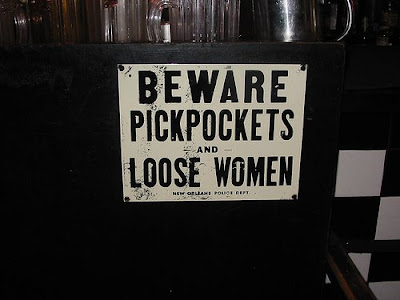Catching Up To The Past: Housebroken by Steve Watkins
 Those of you who know me as a cartoonist will be interested and perhaps happy to know more about the following individual I'm highlighting here. KJ hit me up to this a few days ago with an email and a link, along with a note saying that it was very fitting that this guy was the first of our group to make it into the comic strip business.
Those of you who know me as a cartoonist will be interested and perhaps happy to know more about the following individual I'm highlighting here. KJ hit me up to this a few days ago with an email and a link, along with a note saying that it was very fitting that this guy was the first of our group to make it into the comic strip business. I'm talking about Steve Watkins, a fellow comic strip artist and contributor from my days at Howard University in the early 90's. Steve has a comic strip called Housebroken which has been syndicated by Tribune Media since 2002. He has since had two compilation books of his strip published, "Housebroken: There's A New Dawg In Town" and "Gangsta Yoga With DJ Dog" and his site contains an animated short with his main character and starring a take on some familiar faces.
I won't immediately get into the strip without first getting into how I know Steve first, since I know more about him than I do the strip. Steve Watkins was part of a small crew of comic strip artists who published together in Howard U's newspaper in the early 90's; a comics page that was founded by Head Artist Rodney Reynolds and also included KJ, Vladimir Leveque, John Dean, Lisa Ransaw, Chris "Nomad" Jones and myself.
I remember when Steve came in the first time; somewhat shy and quiet, with his portfolio in hand and eager to start contributing. KJ and I looked over his work; we were impressed particularly with a rendition of a film poster of the movie Strictly Business (starring a young lady he had a professed crush on; new to movies named Halle Berry) that he did in pencil. His strip was congenial, yet indicative of the sarcasm that informs his and many black-oriented strips today; poking fun at Hip-Hop Generation's mixed notions of priority and sensibility. He was adopted by the group and sort of fit in as the little brother that everyone picked on, yet cared much about. Whenever we had a production meeting to discuss the strips that were being published that week, he would sit quietly in the back or to the side in our small section of space in the what was the newspaper office and offer short and quiet reviews of our work. Feeling that we was sensitive, we always made a point of including him in the conversation and allowing him space to make his observations.
Yet, we did not spare him from criticism, or teasing for that matter. Once, I made an off-hand remark about how his artwork reminded me of the comic strip Curtis, which several others nodded in agreement to; his eyes shot open wide and you could almost see his foot hit an invisible gas pedal. Steve stood up and responded to the bit of criticism he had received on the particular strip, and then turned to me without pausing, "and don't you EVER compare my strip to "Curtis" again!!"
You see, Curtis at the time was, in many of our opinions, a rather obsequious strip that, although featured black people as the main characters in one of the few widely syndicated black-oriented strips, excessively criticized black culture, and lampooned Hip Hop culture in a strangely conservative, almost right-winged fashion. To top it all off, we all agreed that for all of it's didactics and rhetoric, it was poorly drawn art. Needless to say, being compared to such a strip was quite an insult (though certainly not intended in this case) we were all quite shocked, yet impressed with this unlikely outburst. I never mentioned "Curtis" around him again.
Steve was very smart, given that he was so quiet around us, he took on a lot of responsibilities, including becoming the newspaper's Business Manager before I left D.C. for good. I imagined that he was refocusing himself on a more lucrative career path, and that comics was an outlet to release his pent up energies. I didn't figure that he was secretly, or not-so-secretly continuing his efforts as a comic artist all throughout his academic career (his bio says he went to Yale Law School after Howard and naturally became a lawyer afterwards) and continually pursued his ambition to be a professional comic strip creator into the next decade. I suppose from a glance you can say, "nice fall-back option", but as I've said before, you don't know what a person was doing right before he got there. I haven't seen nor spoken to Steve in fifteen years, so I can't rightly say I know what he went through to get there, nor would I compare his journey to my own (who would?), but I can say that I'm not surprised that he made it. He's definitely deserving of the breaks he'd gotten and the success he is having with Housebroken, and I hope that I'll be able to follow up with a contact from Mr. Watkins himself and perhaps a discussion on the old and new. I did send him an email, hopefully he'll get back to me soon.
Meanwhile, I'll catch up on his new strip, and keep working to get where he is. Wish me luck! >;)


Comments